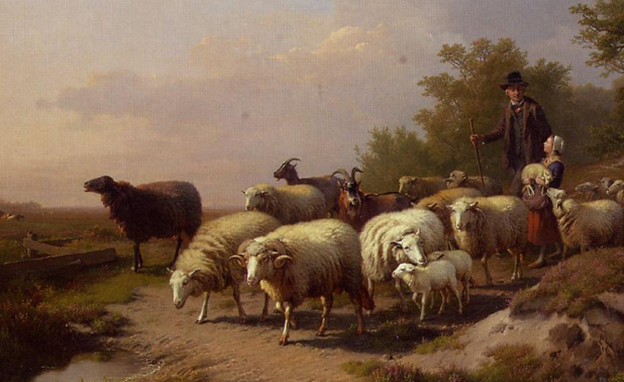Everyone has priorities. We see this in daily life. Some people are devoted to career advancement, while others prioritise family or personal commitments. Some people seek to maximise their wealth, even at the expense of others. Others sacrifice themselves for a cause. Some even sacrifice themselves completely for God’s service.
Not many of us are called to the mission field or the pastorate, but all of us are called to put God first. In this section of the divine laws given at Mount Sinai, God circles back to where he began: a focus on worshiping him. Here, God commands Israel to show reliance on him through sabbatical laws, thank him through harvest-based worship festivals, and honour him through following commands on the nature of their sacrifices. While these specific laws do not bind us today, they remind us to put God first.
Firstly, this passage reminds Israel to rely on God through its sabbatical laws. God imposed sabbatical laws on the land he was giving them.
For six years, Israel was to till their fields, prune their vineyards, and tend their orchards, but in the seventh year they were to “let it rest and lie fallow” (vv.10-11). Anything that did grow, being wild sown, was available to any but especially the poor (who lacked land) and the wild animals to enjoy. The farmer or horticulturalist trusted God to provide from the bounty promised in the sixth year (Lev. 25:21).
Since the sabbatical year supplemented the Sabbath, the Fourth Commandment is restated in verse twelve. Its application to all in the land, even a servant or a migrant worker, was reaffirmed. The purpose of this weekly sabbath is to rest and refresh; to catch your breath and regain some strength for the week ahead.
This restatement was joined with a reminder to keep all of God’s commands, and to remember that these laws and Sabbaths existed so the Israelites would glorify God. Their devotion to God, honouring the First Commandment, was to be so extensive that they would not even utter the names of other false Gods in worship (v.13), because they wholly relied on God.
Their reliance on God was also to be demonstrated through thank offerings at three harvest-related worship festivals (v.14). The Canaanites around them also had harvest festivals, but the festivals of Israel were to point solely to God as provider, and give thanks for his provision.
The first festival is that of Unleavened Bread, which coincided with the barley harvest (v.15). Not only was the provision of barley celebrated, but also God’s acts in history to redeem them from slavery in Egypt. All were to participate in this feast, and offer sacrifices to God (v.15).
The second festival is the Feast of Harvest, or Pentecost, at the time of harvesting wheat (v.16). At this harvest, the firstfruits were baked into a loaf and presented to God, thanking him for the crops he gave.
The third festival is the Feast of Ingathering, or Booths (v.16). In this festival everyone lived in tents to celebrate their ancestors living in the wilderness, and presented offerings of the fruits of the vineyards and orchards to God. All three festivals were commanded for all Israel, represented by the men as household heads (v.17).
Thirdly, Israel was to honour God by the nature of their sacrifices. They were not to offer sacrifices (including blood, signifying life) with items containing yeast (v.18), because yeast was considered to ritually corrupt an item.
Nor were Israel to let the fat portion of a sacrifice (reserved for God, as the best portion) remain overnight (v.18). This avoided improperly lengthening a ritual, or sinfully taking what belonged to God and eating it yourself.
Likewise, not just the firstfruits but the best firstfruits belonged to God (v.19). They could not pick and choose the parts to give to God.
Finally, God banned an offensive pagan practice where a young animal was cooked in the milk of its mother: cooked by what should have sustained it (v.19). Israelites were not to co-opt the heartless worship practices of Canaan and “Yahwehfy” them.
All these commands were about putting God first. While we do not have sabbath years, the principles of trusting God by not pursuing every last possible dollar, every minute of the day, still apply today. Accepting God’s provision instead of constantly looking for the next dollar shows our reliance on him.
We should also freely give back to God from what he has given us. Giving of our time, our skills, and our possessions is an act of thank worship to God. It exists in the context of our redemption from sin through Christ’s life, death, and resurrection, just as Israel’s festivals celebrated their redemption from Egypt.
And this passage reminds us to honour God in the way we worship. We cannot adopt worldly ways, or hold back from God what belongs to him. We owe our whole selves as living sacrifices! When we worship God with all our being, we are putting God first.

